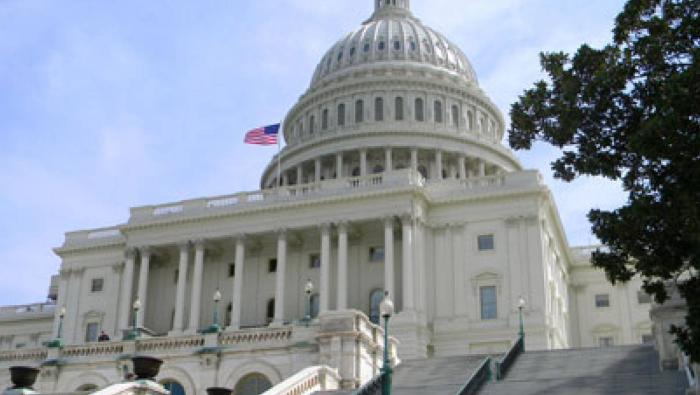Congress is preparing to vote on a government-wide spending bill that includes an $18 billion budget for the FAA in Fiscal Year 2018 and a six-month extension of the agency’s authorization. Congress must act on the massive spending bill before the end of tomorrow or face another government shutdown.
The FAA authorization extension, which would run through September 30, was included shortly before the FAA’s authorization is set to expire at the end of March. Congress opted to provide additional time to hash out differences on multi-year House and Senate FAA reauthorization bills. But the key sticking point, the future of the air traffic control system, has been settled, at least for now, with House Transportation and Infrastructure Committee chairman Bill Shuster (R-Pennsylvania) dropping his push for an independent user-funded ATC organization.
The government-wide omnibus bill funds the FAA through the remainder of FY2018. The FAA, like most of the federal government, had been operating under a series of stop-gap budget extensions that kept funding flat. But with the full appropriations bill, the FAA is to receive nearly a $1.5 billion boost in this year’s budget. That omnibus measure also includes provisions of interest to the business and general aviation community, such as funding to expand use of organizational designation authorization; a directive for the FAA to create standards on additive manufacturing; the continuation of privacy protections from real-time flight tracking data; a directive for a Part 135 Aviation Rulemaking Committee on Part 135 rest and duty time rules; a directive for a study on Part 135 trends; and increased NextGen funding. The ban on large aircraft at Teterboro Airport in New Jersey is continued.
Similarly, the long-term FAA reauthorization bill is anticipated to include a number of measures closely watched by the industry that touch upon certification reforms, the future of supersonic travel, the incorporation of unmanned aircraft into the National Airspace System, and protection of the U.S. aircraft registry from future potential government shutdowns.
Other measures discussed have included an initiative—one the National Air Transportation Association opposes—to eliminate the barriers between private and commercial flights. NATA is hoping to ward off that effort and protect against what it believes would be the encouragement of so-called gray charter. Also, the association is monitoring a provision regarding a report on rest and duty time rules and another measure that could alter aircraft registration privacy protections.






